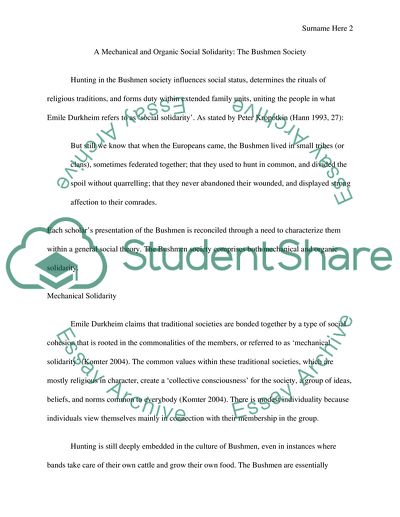Cite this document
(“Argue that hunting among the Bushman is not merely a physical act, but Essay - 1”, n.d.)
Argue that hunting among the Bushman is not merely a physical act, but Essay - 1. Retrieved from https://studentshare.org/anthropology/1581621-argue-that-hunting-among-the-bushman-is-not-merely-a-physical-act-but-one-that-touches-often-deeply-every-domain-of-bushman-society-and-thus-promotes-social-solidarity
Argue that hunting among the Bushman is not merely a physical act, but Essay - 1. Retrieved from https://studentshare.org/anthropology/1581621-argue-that-hunting-among-the-bushman-is-not-merely-a-physical-act-but-one-that-touches-often-deeply-every-domain-of-bushman-society-and-thus-promotes-social-solidarity
(Argue That Hunting Among the Bushman Is Not Merely a Physical Act, But Essay - 1)
Argue That Hunting Among the Bushman Is Not Merely a Physical Act, But Essay - 1. https://studentshare.org/anthropology/1581621-argue-that-hunting-among-the-bushman-is-not-merely-a-physical-act-but-one-that-touches-often-deeply-every-domain-of-bushman-society-and-thus-promotes-social-solidarity.
Argue That Hunting Among the Bushman Is Not Merely a Physical Act, But Essay - 1. https://studentshare.org/anthropology/1581621-argue-that-hunting-among-the-bushman-is-not-merely-a-physical-act-but-one-that-touches-often-deeply-every-domain-of-bushman-society-and-thus-promotes-social-solidarity.
“Argue That Hunting Among the Bushman Is Not Merely a Physical Act, But Essay - 1”, n.d. https://studentshare.org/anthropology/1581621-argue-that-hunting-among-the-bushman-is-not-merely-a-physical-act-but-one-that-touches-often-deeply-every-domain-of-bushman-society-and-thus-promotes-social-solidarity.


